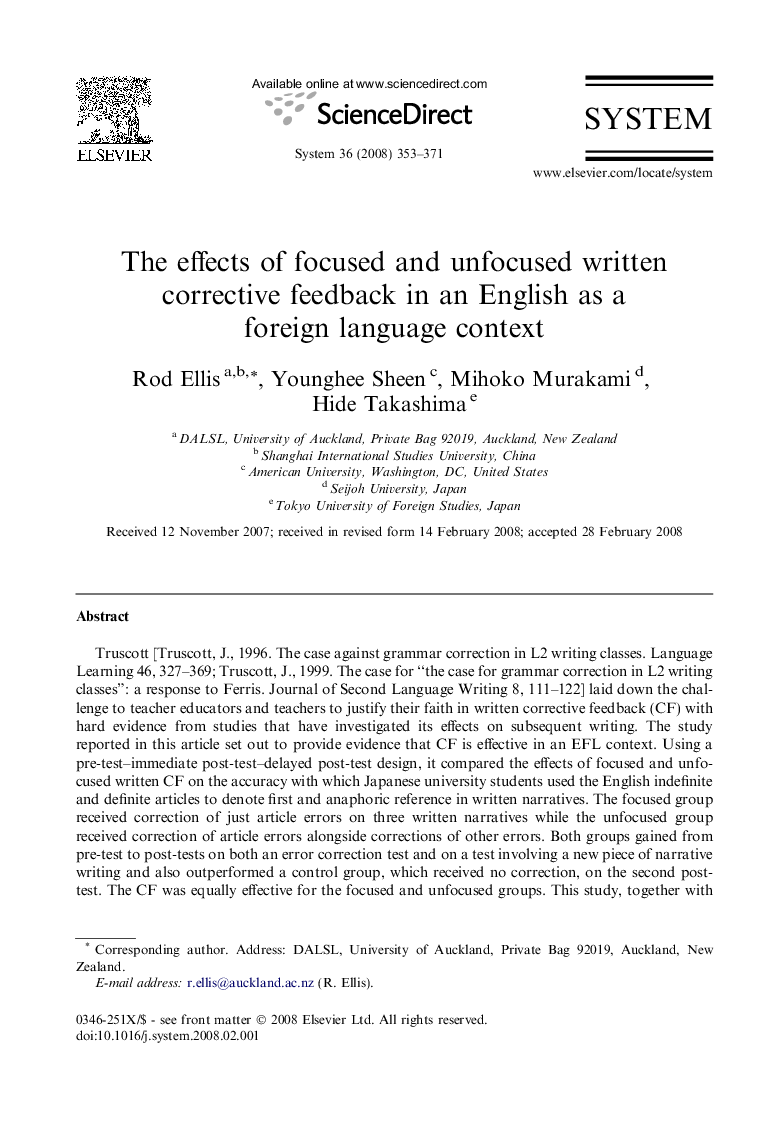| کد مقاله | کد نشریه | سال انتشار | مقاله انگلیسی | نسخه تمام متن |
|---|---|---|---|---|
| 373785 | 622339 | 2008 | 19 صفحه PDF | دانلود رایگان |

Truscott [Truscott, J., 1996. The case against grammar correction in L2 writing classes. Language Learning 46, 327–369; Truscott, J., 1999. The case for “the case for grammar correction in L2 writing classes”: a response to Ferris. Journal of Second Language Writing 8, 111–122] laid down the challenge to teacher educators and teachers to justify their faith in written corrective feedback (CF) with hard evidence from studies that have investigated its effects on subsequent writing. The study reported in this article set out to provide evidence that CF is effective in an EFL context. Using a pre-test–immediate post-test–delayed post-test design, it compared the effects of focused and unfocused written CF on the accuracy with which Japanese university students used the English indefinite and definite articles to denote first and anaphoric reference in written narratives. The focused group received correction of just article errors on three written narratives while the unfocused group received correction of article errors alongside corrections of other errors. Both groups gained from pre-test to post-tests on both an error correction test and on a test involving a new piece of narrative writing and also outperformed a control group, which received no correction, on the second post-test. The CF was equally effective for the focused and unfocused groups. This study, together with a few other recent studies, indicates that written CF is effective, at least where English articles are concerned, and thus strengthens the case for teachers providing written CF.
Journal: System - Volume 36, Issue 3, September 2008, Pages 353–371